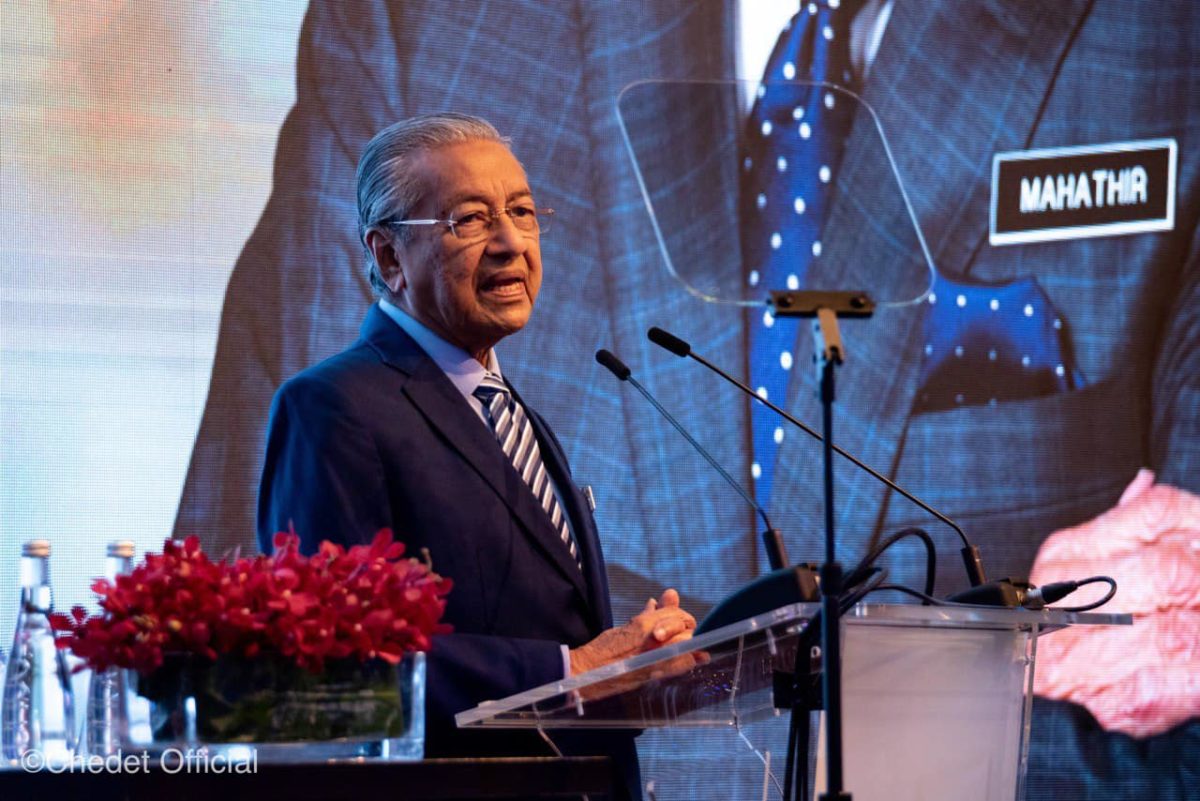KUALA LUMPUR, Dec 24 — Doctors, engineers, architects, and various professionals once deemed vital to Malaysia’s development will no longer receive a “critical” allowance when they join the civil service next year.
The Pakatan Harapan (PH) administration’s decision to eliminate the Critical Service Incentive Payment (BIPK) affects government workers across 33 Critical Service schemes who are appointed from January 1, 2020. However, current civil servants in those schemes will continue receiving the BIPK, according to a Public Service Department (JPA) circular issued last Friday.
New medical officers, pharmacy officers, dental officers, as well as lecturers in medicine, dentistry, and pharmacy will not receive the monthly RM750 BIPK allowance enjoyed by their current counterparts in the public sector.
As for other new government workers joining the Critical Service schemes next year, they will not be paid the BIPK allowance that comprises 5 per cent of the monthly basic salary for the management and professional group, or 10 per cent of the monthly basic salary for the administrators’ group. Nurses’ BIPK allowance is 10 per cent of their monthly basic salary in the management and professional group and 15 per cent in the administrators’ group.
According to a December 2018 BIPK document by the Accountant General’s Department of Malaysia, the BIPK is allocated to workers in 38 Critical Service schemes that include health care workers like doctors; nurses; pharmacists; dentists; and medical assistants; besides architects; engineers; pilots; air traffic controllers; airplane inspectors; researchers; sea officers; legal officers; vocational assistant officers; factory and machine inspectors; show producers; lecturers in medicine and dentistry; as well as university and specifically, UiTM, lecturers in various fields like engineering, law, nursing, architecture, and pharmacy.
So it is unsure which 33 of the 38 Critical Service schemes, according to JPA, will no longer provide the BIPK allowance for new recruits.
JPA explained last Friday that the BIPK should be reviewed every five years to determine the necessity of the allowance for the Critical Service schemes that were started back in 1992 under Prime Minister Tun Dr Mahathir Mohamad’s first stint in office, but the last review was done 12 years ago in 2007.
According to a 2007 circular on the BIPK, the then-Barisan Nasional government led by Dr Mahathir introduced the Critical Service schemes, along with the BIPK, in 1992 because of the country’s lack of human resources in certain fields that could affect the progress of strategically important development programmes.
“As a matter of principle, the BIPK allocation is not permanent and can be withdrawn when the relevant service schemes are no longer critical”.
Public Service Department (JPA)
“After the last review in 2007, the newest review was conducted in 2019 and found that all 33 service schemes allocated with the BIPK no longer fulfil the original criteria for providing the BIPK, which are a low offer rate and difficulty in filling vacancies,” JPA said in an FAQ accompanying its circular dated December 20.
“Because of that, the Special Cabinet Committee Meeting on Public Service Reforms (JKK-PAA) Number 1 in 2019 chaired by YAB Prime Minister has decided to retain the BIPK for current recipients at the current rate, but not to give the BIPK to new officer appointments.
“Therefore, as of 1 January 2020, new officer appointments into the affected service schemes will no longer receive the BIPK.”
JPA also explained that contract officers whose reappointments continue from their previous contracts without a break will still be eligible for the BIPK allowance.
The Health Ministry has started reappointing medical officers on contract, extending their contract from housemanship, to serve their mandatory two-year service with the government, as it is unable to absorb all junior doctors due to a lack of vacancies amid a glut of medical students.
Yet, junior doctors in the public sector have complained of overwork, even as health analysts believe that the Health Ministry’s RM31 billion budget for 2020 is insufficient because government health spending still hasn’t reached 4 per cent of Malaysia’s gross domestic product (GDP).
According to Health Ministry records, the number of patient visits comprising both inpatient and outpatient visits to government hospitals and clinics has quadrupled in a decade, from 17 million visits in 2008 to 77 million visits last year.
The December 20 circular by Public Service director-general Mohd Khairul Adib Abd Rahman also eliminated eight other allowances in the public sector effective next year, including incentives to transport waste or to type Jawi; an entertainment allowance for private secretaries and senior private secretaries; an electrical generator operator allowance; and an English language proficiency incentive, among others.
The government combined eight allowances into two renamed allowances. One is the Special Team Incentive Payment that combines five allowances for the Special Service Regiment; the Special Navy Team; the Special Air Force Team; the Royal Malaysia Police Special Service; and Malaysian Maritime Enforcement Agency’s Special Action and Rescue Team. The allowance is RM600 monthly for up to 10 years of service, RM750 monthly for between 11 and 15 years of service, and RM900 monthly for service of 16 years and above.
Another renamed food allowance combines three food allowances of the Malaysian Armed Forces, the Malaysian Maritime Enforcement Agency, and the Royal Malaysia Police.
Amid the government’s struggles with the financial burden of a 1.7-million strong civil service, Dr Mahathir reportedly told Dewan Rakyat last October that existing public sector workers would still be entitled to a pension after retirement, even though PH was considering replacing the pension scheme.








